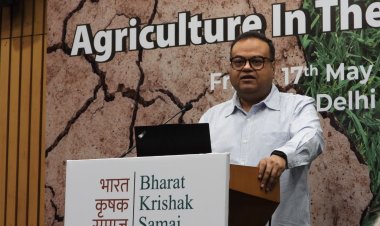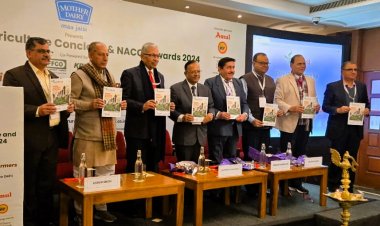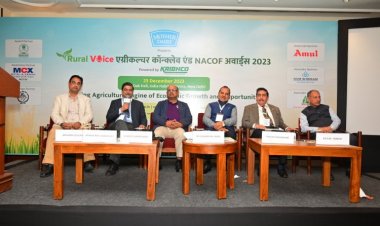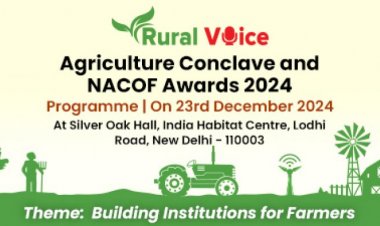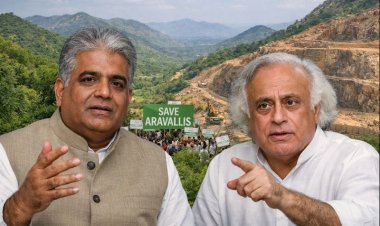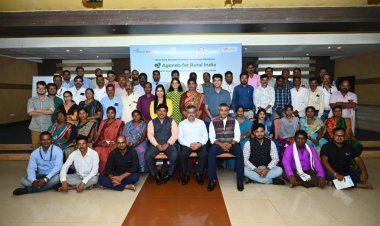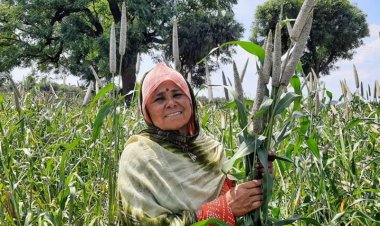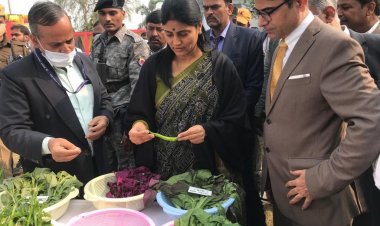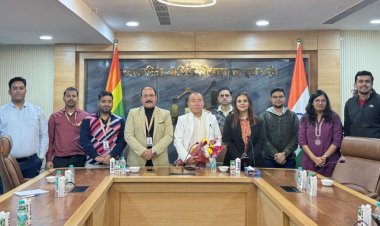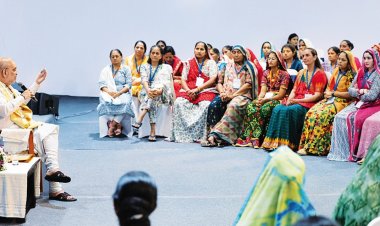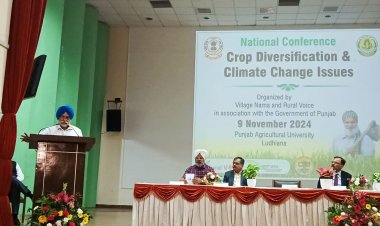Agenda for Rural India: Participants in Meghalaya flag Rural Connectivity, Agri Marketing, Water, Health and Climate Change
The question as to ‘how should the development agenda for Rural India be framed’ came under close scrutiny during an animated discussion at 'Agenda for Rural India - Shillong' organised in Meghalaya by Rural Voice, Socratus and NESFAS.
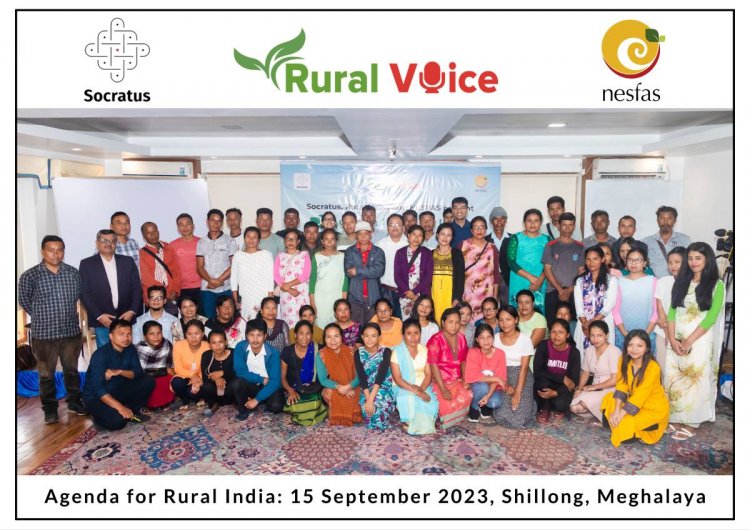
The question as to ‘how should the development agenda for Rural India be framed’ came under close scrutiny during an animated discussion at 'Agenda for Rural India - Shillong' organised in Meghalaya by Rural Voice, Socratus and NESFAS.
The day-long event was participated by diverse rural stakeholders from seven districts of Meghalaya, including farmers, women SHG members, rural entrepreneurs, bee keepers, artisans, teachers, village employment council members, village council members and weavers. It was a very diverse group of 60 participants from Garo, Khasi, Jaintia and Karbi tribes with both men and women representatives.
The participants discussed and deliberated on a multitude of issues they face as rural citizens. They also lucidly presented their aspirations for their respective villages and the kinds of policies they would like to see implemented. Agenda for Rural India, Shillong is part of a series of convening of rural people being organised nationwide by Rural Voice, a digital media organisation, and Socratus, an NGO working in social and rural sector. Earlier convening were organised at Muzaffarnagar in Uttar Pradesh in June. In August convening was organised in Bhubaneswar, Odisha and in Jodhpur Rajasthan. NESFAS, an NGO working for rural sector, and Indigenous Peoples’ Food Systems were the local partners for the Agenda for Rural India convening at Shillong.
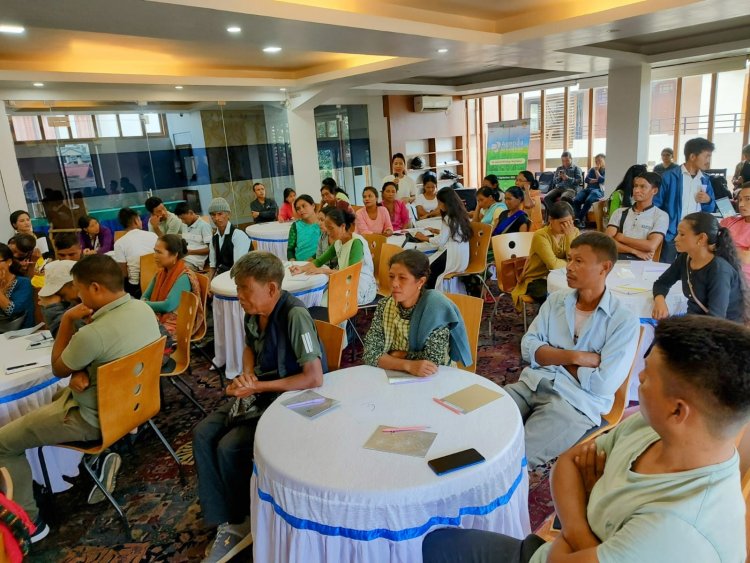
In the opening remark of Agenda for Rural India convening Harvir Singh, Editor-in-Chief, Rural Voice said, "The focus of these convenings is to tap rural citizens from the grassroots. Our goal is to provide a bottoms-up approach to bridge the divide between the rural communities and policymakers, bureaucrats, politicians, experts and media. This is crucial in order to create a more inclusive and representative decision-making process. "By amplifying the voices of those living in rural areas, we can ensure that their needs and concerns are being heard and addressed. Together, we can strive for a more equitable and informed society," he said.
Participants raised a large number of issues and problem they are facing as rural citizens and as farmers. Some of the issues highlighted by the participants related to agriculture and rural infrastructure and social sector. In agriculture sector, poor soil health, soil erosion, unavailability of quality seeds and bio-inputs, increasing incidents of pest attack, poor irrigation facilities and poor rural connectivity were identified as impediments.
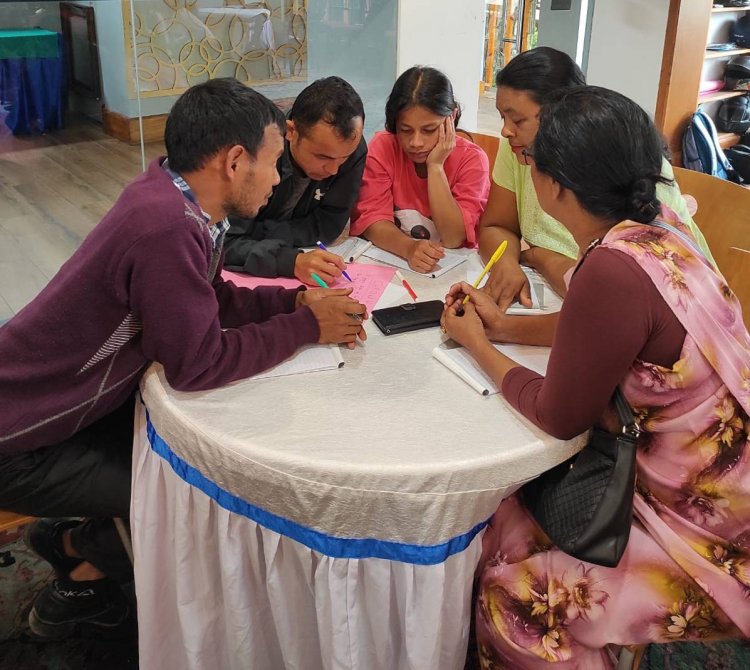
In addition, there is poor marketing infrastructure for agricultural produce, low price realisation and lack of proper storage facilities and cold storages. Climate change is a big problem for agriculture sector as more extreme weather incidents are increasing. In the area of social sector participants flagged the issue of poor health and educational infrastructure. Absence of teachers in the village schools and poor building infrastructure was raised. Unemployment, high rate of drugs use and early marriage and no proper childcare facility were raised as a big social problem.
Rural connectivity is not good and supply of electricity is also not good. Drinking water facilities need to be improved in a big way as villages are facing drinking water problem. Participants were of the opinion that governments and political system must act fast to resolve the problems raised by them. They also demanded that government should support farmers for adopting traditional farming, providing bio fertilizers and bio pesticides to reduce the use of chemical fertilizers and pesticides.
The Government should start schemes for better irrigation facilities and increase the irrigation coverage through check dams and by improving power supply to farmers. The Government must also act to remove middlemen from agriculture marketing for better price realisation from agriculture produce.
One important issue raised by participants from Garo hills region was increasing human wildlife conflict which is becoming a big problem for farmers.
Issue of poor Governance and corruption in government scheme and departments was flagged as a major issue by the participants.
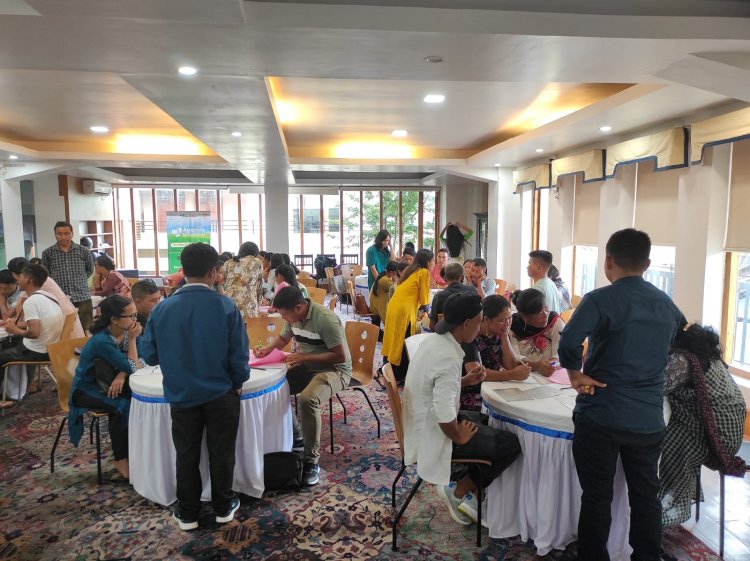
In his concluding remarks, Prachur Goel, Director, Socratus, said, "For making policies, the practice of holding dialogues with rural citizen’s takes on profound significance. It is through these dialogues that we bridge the gap between urban and rural perspectives gaining valuable insights into the unique challenges, needs, and aspirations of our rural communities. By engaging in these conversations, we not only inform the policymaking process but also foster a sense of inclusivity and ownership among rural citizens, empowering them to actively shape the policies that will directly impact their lives and livelihoods."
"The convening today has brought forward important insights, which we hope will be useful for the planned meeting at New Delhi. We are confident that this collaborative effort will enhance our collective understanding of the region and lead to a more impactful and successful rural convening", said Pius Ranee, Executive Director, NESFAS.
This event is part of a series of convenings being organised by Rural Voice and Socratus across rural India to address the unique challenges faced by rural communities in the country. These events aim to address the urban-rural divide and enable rural stakeholders to voice their opinions, promoting sustainability and inclusivity in rural development.
Through dialogue and collaboration, there is a hope to develop a comprehensive rural agenda that addresses the needs of these communities. The aim is to share the compiled insights from these convenings with policymakers and experts at the national level in November.



 Join the RuralVoice whatsapp group
Join the RuralVoice whatsapp group

















